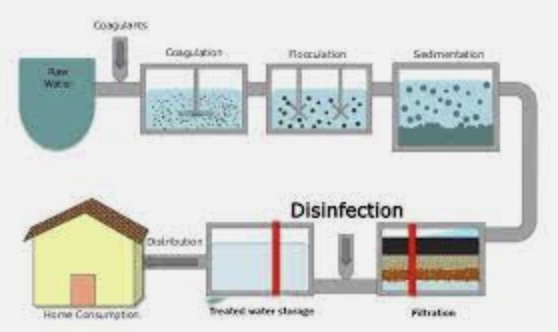Water purifiers have become a necessity for every household because of the increased pollution. Water purifiers make sure that you get clean and safe drinking water and stay away from water-borne diseases. There are many types of water purification processes such as Reverse Osmosis Water Filtration (RO), Ultra Filtration (UF) and Ultra Violet disinfection (UV).
You have to choose a water purification system depending on the quality of water in your neighbourhood. Though we can easily get in touch with the professionals for RO service in Pune if there is a problem, it is always helpful to know how these systems work.
How Does A UV Water Purifier Work?
A UV water purifier treats impure water with germicidal ultraviolet light. The UV wavelength destroys the DNA of unsafe living organisms in the water, so they can no longer reproduce and spread any diseases. If you drink bacteria-infested water, the organisms will reside in your digestive tract and replicate. Ultraviolet radiation renders bacteria, viruses, parasites, and fungi unable to replicate by damaging their DNA.
Process Of Purification-
A UV water purifier destroys the DNAs of living organisms, such as bacteria, viruses, or cysts (such as Giardia) with a germicidal ultraviolet wavelength. With enough energy, UV radiation at the 254 nm wavelength destructs the DNA in pathogenic microorganisms and makes them unable to reproduce. Ultraviolet light stops bacteria from spreading disease through drinking water.
How Does A RO Water Purifier Work?
Reverse osmosis (RO) is the process of removing dissolved inorganic solids using a semipermeable membrane. The water passes through the membrane under excessive pressure but most of the contaminants are left behind.
Reverse osmosis is an extremely effective way of purifying water and is generally combined with a number of other filters. It uses a mechanical (sediment) filter and an absorption (activated carbon) filter in order to produce safe water with few contaminants remaining.
Reverse osmosis systems use water pressure to force water through the semi-permeable membrane so it uses no electricity. Though a certain amount of waste water is produced that has to be discarded.
The extra filters involved in multi-stage water filtration can make a reverse osmosis unit a little bit more expensive than other filtration methods. But in applications where 99.9% pure water is required, RO offers the best level of purification. For the best purification perform water purifier service in Pune regularly.
Will Reverse Osmosis Remove Minerals That Are Good For My Body?
Tap water varies in every city and water source; some tap water is heavy in mineral content which can affect the taste and smell of water. Purifying water with a reverse osmosis system will remove the majority of minerals in water and greatly improve the purity of drinking water.
Because minerals in water are in an inorganic state that is not suitable for our bodies. That is why removing the minerals do not make RO-filtered water unhealthy. Keep in mind that food is the primary source of the essential minerals our bodies -and also in a form, our bodies can digest.
Ultra Filtration
The ultra-Filtration process uses hydrostatic pressure to force water against a semi-permeable membrane to remove bacteria and different types of microorganisms in the water.
Ultra-Filtration is not very different from reverse osmosis, and microfiltration, except for the size of the molecules it retains. Ultra filtration system helps in removing colloids, bacteria, pathogens and other harmful molecules using the semi-permeable membrane.
Inline Water Filters
Inline filters are used directly on the water line or appliance and the water passes through the filter before reaching the tap or appliance. Commonly used in households this type of filtration is ideal for installations under sinks because of its small size.
Inline filters can reduce common issues with municipal water such as chlorine taste, bad smell and bacteria providing water that tastes like bottled water without creating plastic waste.
Fridge Filters
Fridge filters are used to filter the feed water coming through to the drinking water and ice mechanism. Most commonly found on American-style fridge freezers, the size and function of the filter vary depending on the model and style of the fridge freezer.
Summing Up
Water purifiers from top brands use a combination of purification methods that helps in removing different types of contaminants and make water suitable for drinking.
